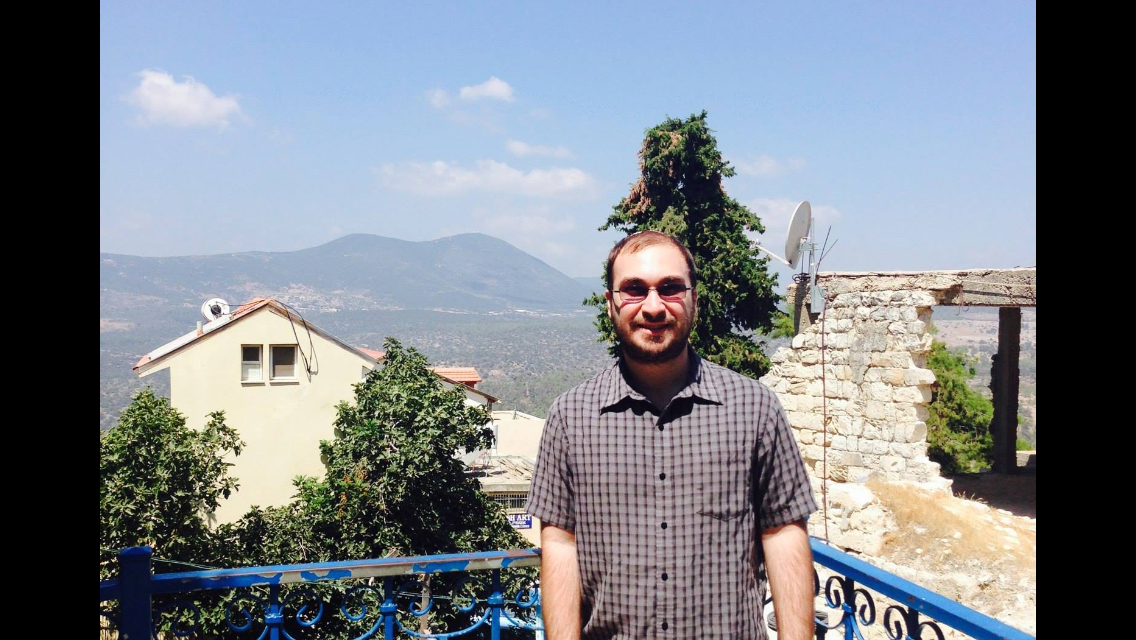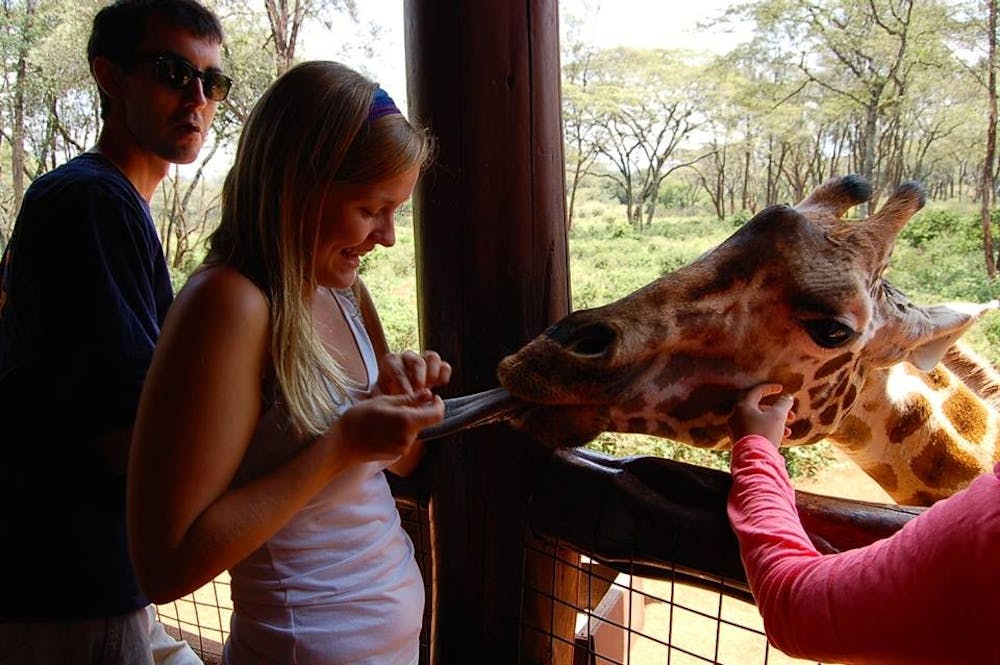In recent years, the world that Americans see through the news has become increasingly scary. Yet year after year, students flock to AU with the intent of studying abroad in many of these areas. This semester, 477 students are studying abroad through the AU Abroad office, at least 48 of which are in Kenya, Jordan and Israel, areas of the world considered to be high-risk.
According to Sara Dumont, the executive director at AU Abroad, the University takes a “multipronged approach” to approving study abroad programs. This often includes a site visit and extensive talks with people in the area, from program staff to local security forces to foreign service officials.
“What we don’t do is rely just on news reports or just on what the State Department says,” Dumont said. “We are fortunate at AU in that we have an enormous amount of expertise and experience here … and so we probably engage with sending students to so-called riskier sites than a lot of other universities.”
Out of the all of the programs operating currently, Dumont said she considers the programs in Kenya and Israel to be the most high-risk.
In Nairobi, Kenya, where the University has operated its own program for eight years, crime is the biggest concern. Home to the largest slum in East Africa, the area is riddled with poverty, giving rise to muggings and a high crime rate. As a result, students’ movement and activity are often very restricted depending on the latest intelligence from the area.
Sarah Snead, a junior in the College of Arts and Sciences, is currently studying in Kenya. Although her family expressed concerns about the potential safety risks, Snead said this only strengthened her resolve to go there.
“I see the hazards as part of the experience,” Snead said in an email. “There are safety risks associated with any travel abroad, and the ones presented in Kenya are just exacerbated by Western media … I wholeheartedly decided to go to Kenya because I wanted to learn a lot about a place that is both so beautiful and rich in culture, yet sadly misunderstood.”
In Israel, Dumont said that the University has a great deal of trust in the Israeli universities’ security procedures. Additionally, she said the Israeli universities will cooperate with one another in case a certain area becomes unsafe and students need to be evacuated from there to another part of the country, which allows them to finish their time abroad without losing money or course credit.
Kevin Levy, a junior in the School of International Studies, is currently studying at the University of Haifa in Israel. As a practicing Jew, he had previously traveled to Israel in 2013 on birthright.
“Coming back was never a question of if but when,” Levy said. “Being able to interact with so many different Jews from so many different walks of life here has really enhanced my own experience.”
Levy arrived in Israel for the semester at the height at the Gaza conflict. The American embassy in Tel Aviv, the University and the AU Abroad office had all issued warnings reminding him to be constantly aware of his surroundings.

Courtesy of Kevin Levy
Traveling within the region is one of the biggest limitations placed on students in Israel. Standing at the top of his university, Levy can see Lebanon, a country that will not allow anyone who holds an Israeli visa to visit. What surprised him the most, however, is the constant state of danger in which the people of Israel live.
“My sympathy towards Israeli society has improved … [because of] the very idea that you have to take certain risks to live in this country,” Levy said. “It’s the idea that at any one moment in time tensions could spark and start a fire.”
Part of what makes traveling to such high-risk areas possible is AU’s insurance program, paid for in the AU Abroad program fee, which covers a range of emergency situations, including evacuations. This program was put to the test in 2011, when students were evacuated from three countries: Japan, Syria and Egypt.
In early March, an earthquake and tsunami struck Japan that killed over 15,000 people and left thousands of others injured and homeless. Students were on break and were able to wait in another part of the country until they could return to Waseda University in Tokyo for the next semester. After demonstrations against the government escalated in Syria, AU made the decision to consolidate student’s courses and end the program. The program in Egypt ended when U.S. government ordered the evacuation of all U.S. citizens and organized their return.
In Irbid, Jordan, the providers of the study abroad program decided to stop running it themselves this year. A rural city located near the Syrian border, the area was known to be especially unsafe for female students after reports of harassment. Now, Ammann is the main study abroad destination for students looking to travel to Jordan.
According to Shino Yoshen, a program officer for Amideast, interest in studying abroad in Jordan has not waned much despite the travel restrictions placed on students in the area. The program also has a range of safety measures, including providing each student with a Jordanian cell phone so that they can be reached in case of an emergency.
Michael Kinzer, a senior in SIS, was one of four AU students studying abroad in Irbid last fall. As a male, he acknowledged that his experience was much different than that of female students, but said that once he became familiar with his surroundings, he never felt unsafe.
“I see the hazards as part of the experience,” Snead said in an email.
Kinzer said that the main reason he wanted to study in Irbid was for the language program. In fact, one of the reasons the area was ideal for students studying Arabic was the same reason it’s considered a less friendly environment for female students.
“Its location is much less cosmopolitan than the capital of Jordan, Amman,” Kinzer said. “There would be less people speaking English there, there would be less of American culture there, there would be less American expats there and as a result people speak English less and you have to practice your Arabic more.”Irbid’s location was also unique because of its proximity to the Syrian border. Kinzer said that from the roof of his four story apartment building he could see into Syria. When President Obama proposed airstrikes on Syria last September, Kinzer and his peers discussed the possibility of being able to see them from the roof of their building. Although this never happened, Kinzer said that being in the region while these events were occurring gave him a different perspective than he would have had otherwise.
“[My experiences] really complicated the way that I looked at the Syrian conflict in a way that I couldn’t had I not lived there and had I not seen the many ways that Jordan was amazing...It totally came out of nowhere for me and really struck me, humbled me the way I think about the region,” Kinzer said.





